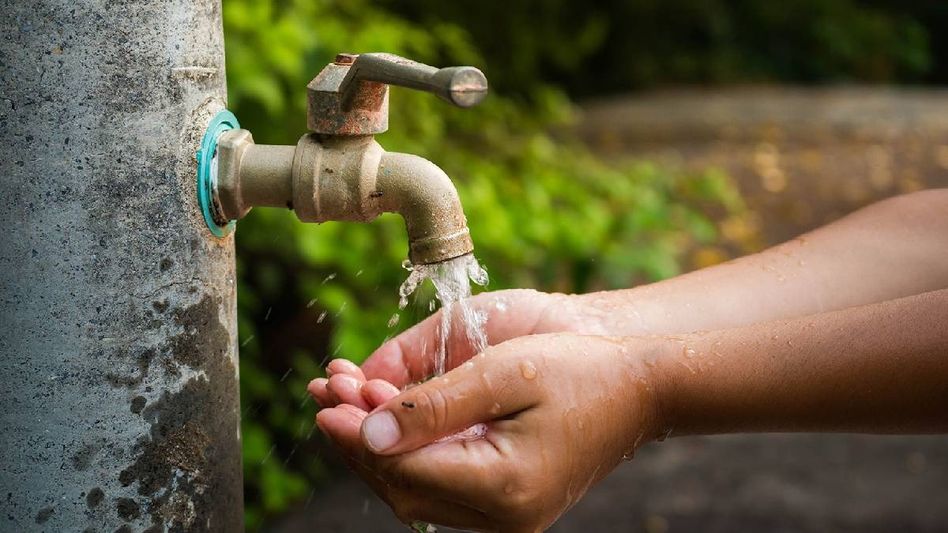Nagaland PHED refutes allegations of misappropriation in Jal Jeevan Mission funds
The scheme, launched in 2019, aims to provide every rural household with a functional tap connection by 2024.
 Nagaland PHED refutes allegations of misappropriation in Jal Jeevan Mission funds
Nagaland PHED refutes allegations of misappropriation in Jal Jeevan Mission fundsThe Public Health Engineering Department (PHED) of Nagaland has formally denied accusations by the Nagaland Transparency, Public Rights Advocacy & Direct Action Organization (NTPRADAO) that it misused Rs. 1,712 crore in funds allocated under the Jal Jeevan Mission (JJM) scheme. The scheme, launched in 2019, aims to provide every rural household with a functional tap connection by 2024.
In a detailed response, PHED Additional Chief Engineer and Head of Department, Er. L. Leyang Khiamniungan, clarified the financial and operational aspects of the JJM’s rollout in Nagaland. Khiamniungan noted that despite challenging terrains and logistical issues, Nagaland has successfully achieved 92.29% household tap coverage, with ongoing work to reach full implementation by the end of the mission.
Explaining the structured approach, Khiamniungan highlighted the role of village communities in the planning, execution, and maintenance of water infrastructure projects. Detailed Project Reports (DPRs) are crafted based on Village Action Plans (VAPs), which then go through approval by the Ministry of Jal Shakti, ensuring transparency and participation at each step. Once the Annual Action Plan (AAP) is approved, work orders are issued to local Water and Sanitation Committees (WATSAN) or certified contractors, with oversight from local village councils.
Contrary to the alleged misuse of Rs. 1,712 crore, Khiamniungan clarified that the actual funds received since 2019 amount to Rs. 1,426.46 crore, with Rs. 1,282.75 crore as the central share and Rs. 143.70 crore as the state’s contribution.
PHED stressed that all payments under JJM are processed through the Public Financial Management System (PFMS) and are verified by a Third Party Inspection Agency (TPIA) under the supervision of District Water and Sanitation Missions (DWSM). TPIA’s involvement ensures transparency and the proper allocation of funds.
On allegations of substandard materials, PHED assured that all pipes and other equipment adhere to Nagaland Public Works Department (NPWD) specifications, are ISI-compliant, and undergo both internal and external quality checks. PHED has also implemented a grievance cell to address public concerns and relies on community feedback to maintain quality. Additionally, the Government of India’s National Test House conducts further external testing before releasing payments.
PHED outlined that JJM projects in Nagaland involve not only the installation of new water supply systems but also the augmentation and retrofitting of existing infrastructure. Upgrades to pipelines, reservoirs, and other water-related infrastructure initially constructed under the National Rural Drinking Water Programme (NRDWP) have been a key focus to improve overall water accessibility.
Training and capacity-building programs are conducted by PHED in partnership with North East Initiative Development Agency (NEIDA), Pinnacle Skills, Zynorique Consultancy, and Kuda Tech Skills. These initiatives aim to strengthen the capabilities of both departmental staff and village functionaries in maintaining JJM projects effectively.
In line with its commitment to quality, PHED conducts routine water quality testing through state and district laboratories accredited by the National Accreditation Board for Testing and Calibration (NABL). Additionally, Field Testing Kits (FTKs) are utilized at the village level, and corrective actions are promptly taken if contamination is detected. Such findings are reported to the Ministry to ensure timely intervention.
Addressing the allegations raised by NTPRADAO, PHED emphasized that the claim of misappropriating 70% of funds for piping infrastructure and 30% for civil works is unfounded. Khiamniungan assured the public that PHED is committed to transparency and welcomes constructive feedback to enhance project delivery.
Also Read: Nagaland govt sends feedback on draft settlement for Frontier Nagaland to Centre
Copyright©2025 Living Media India Limited. For reprint rights: Syndications Today









